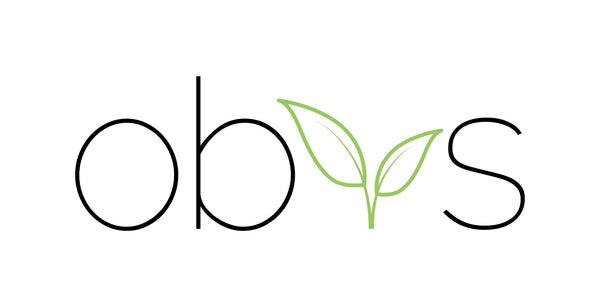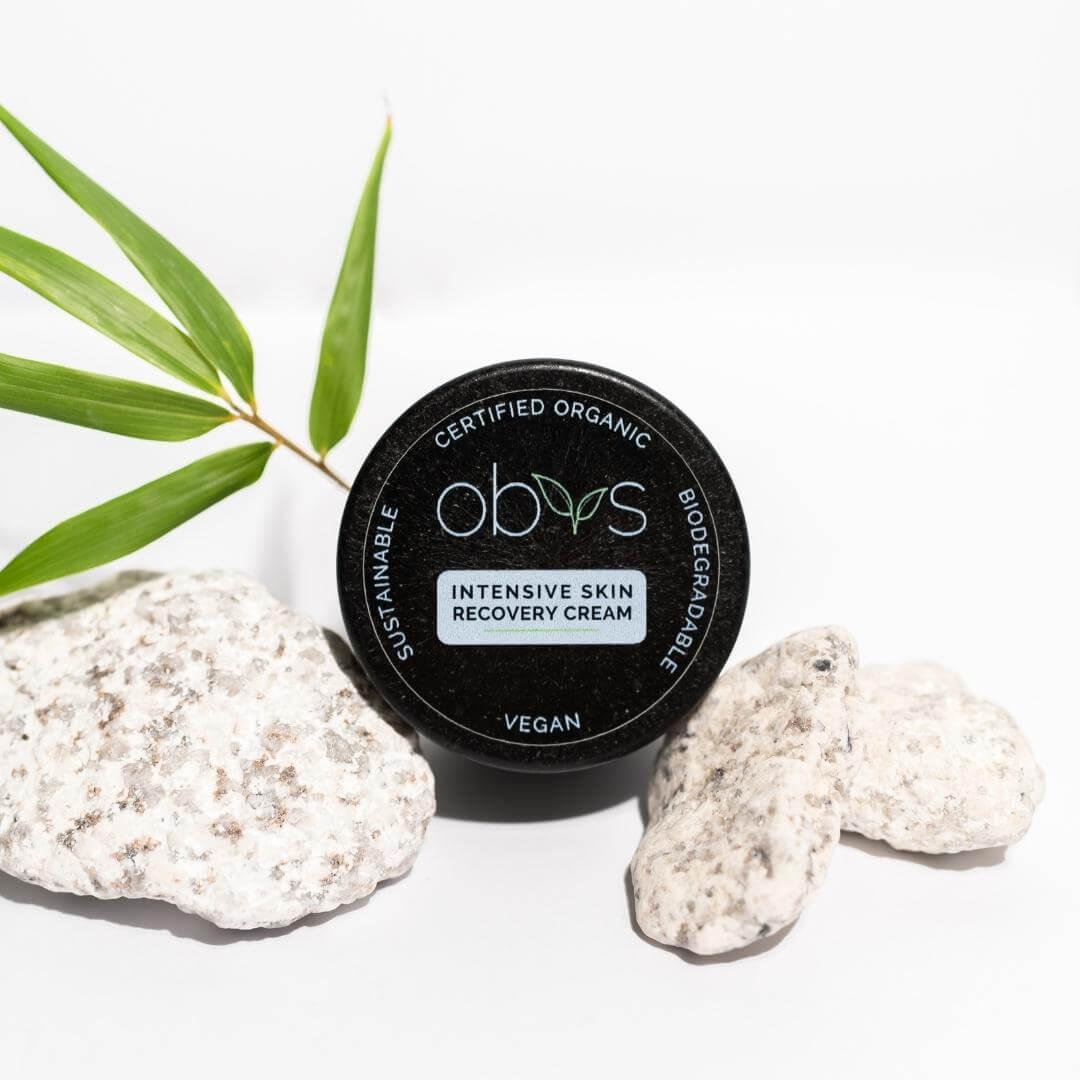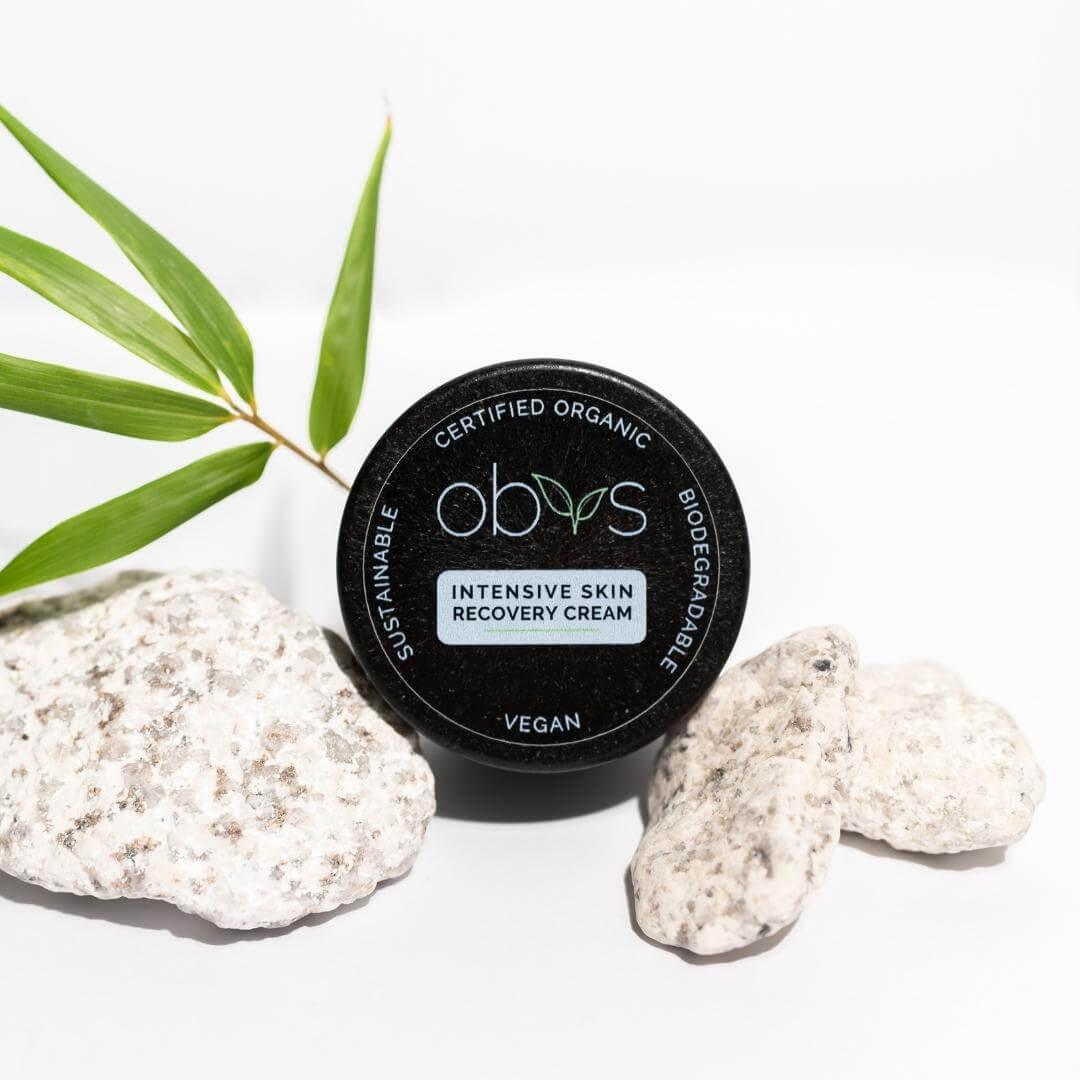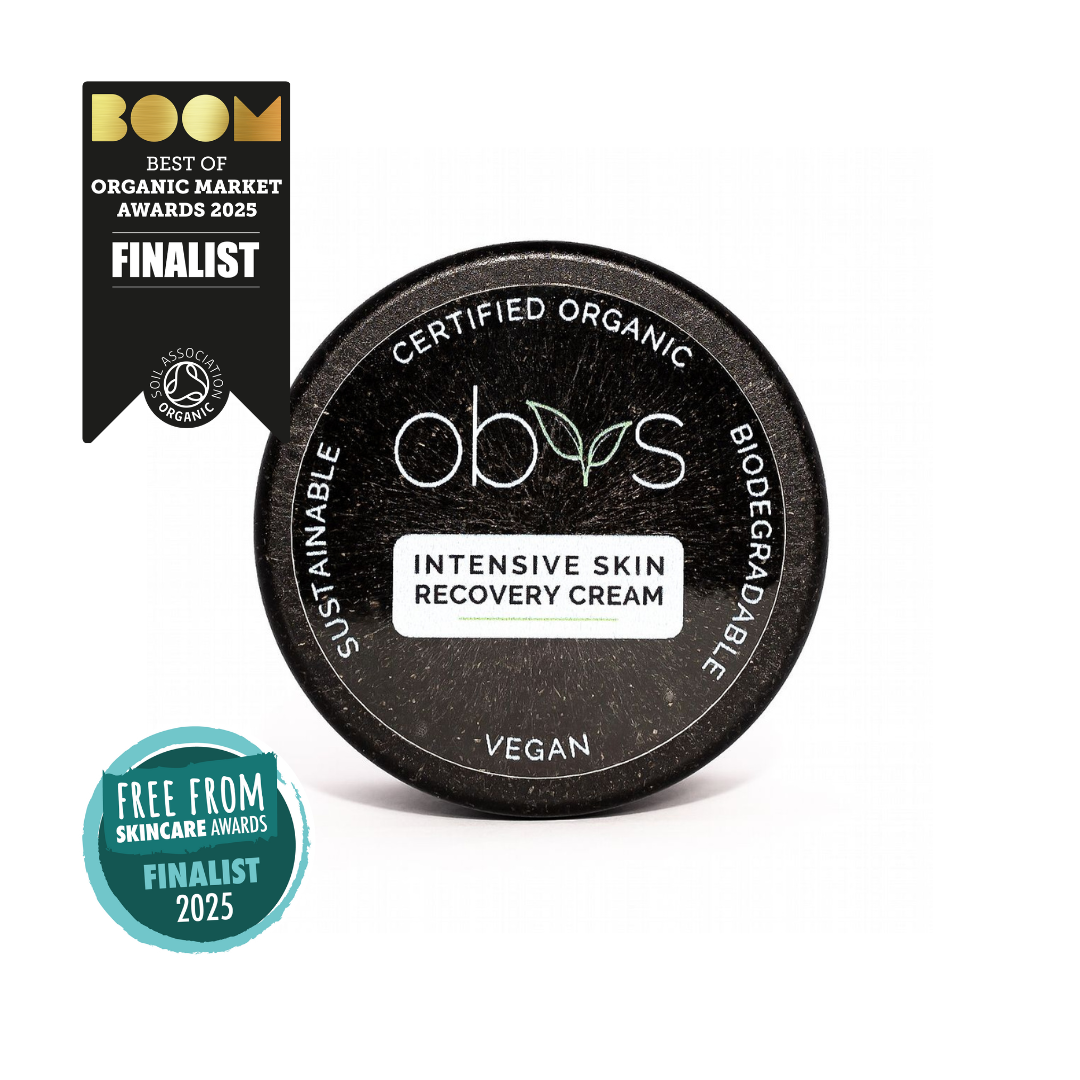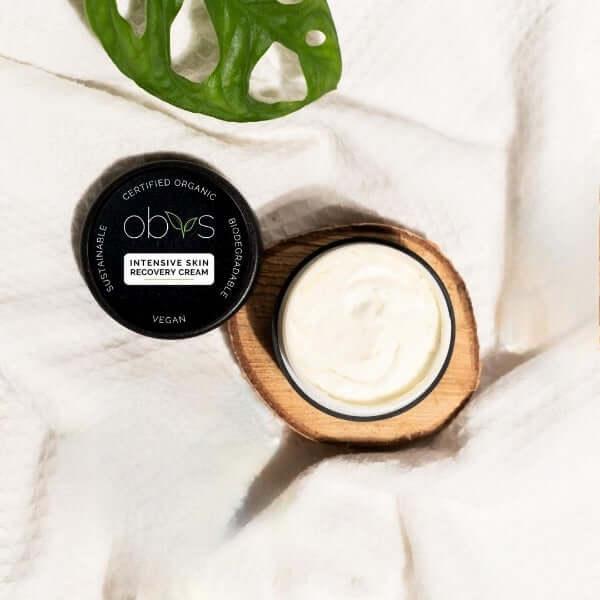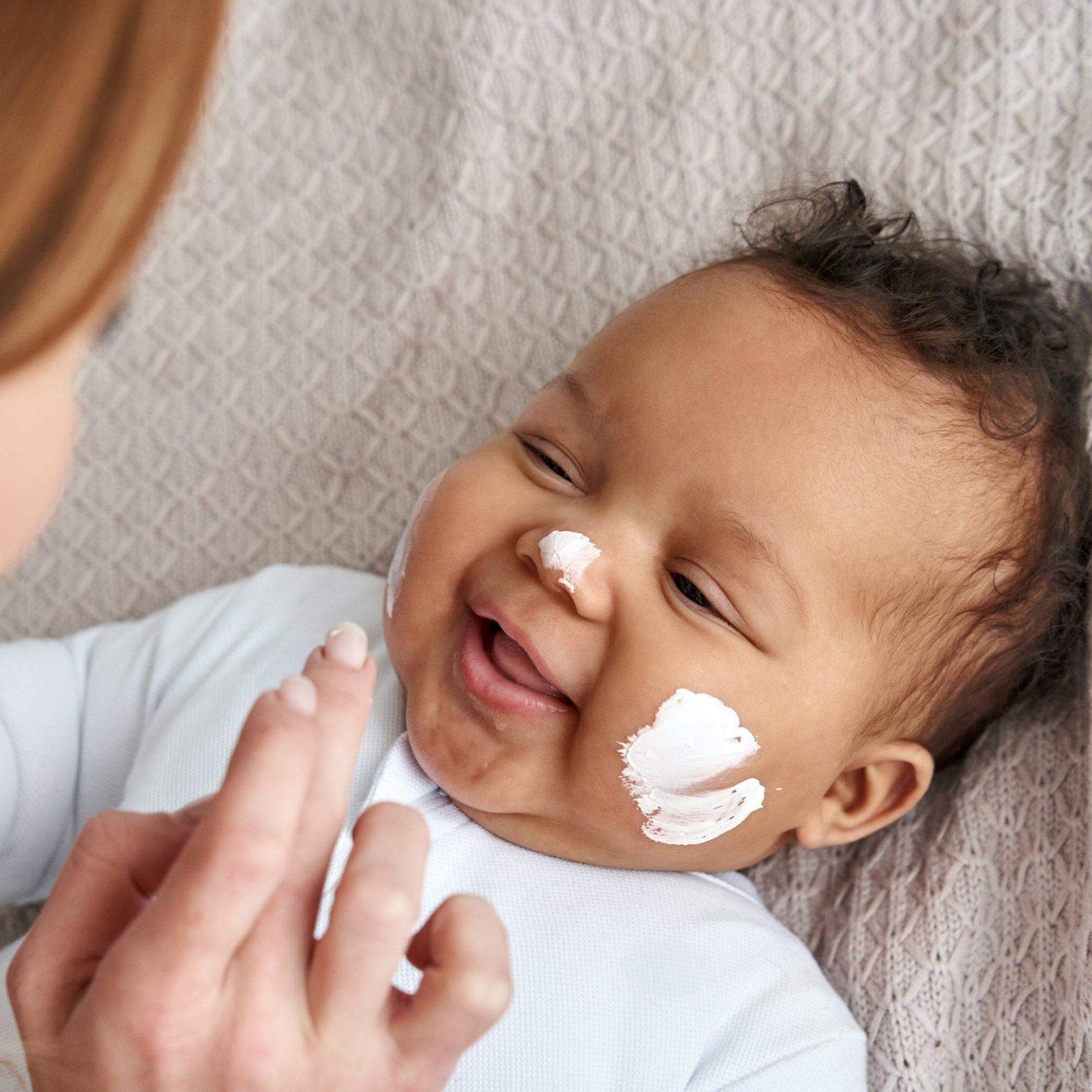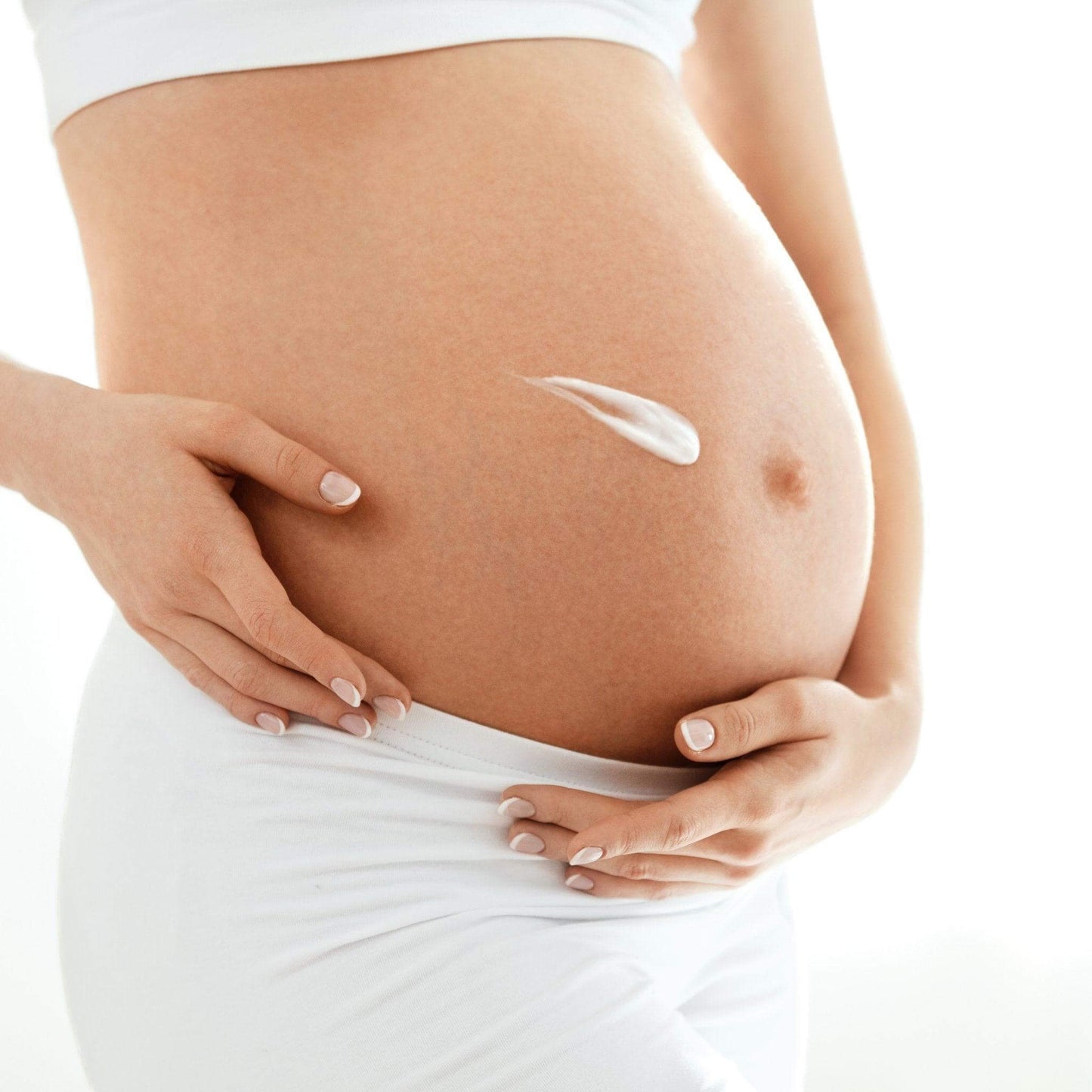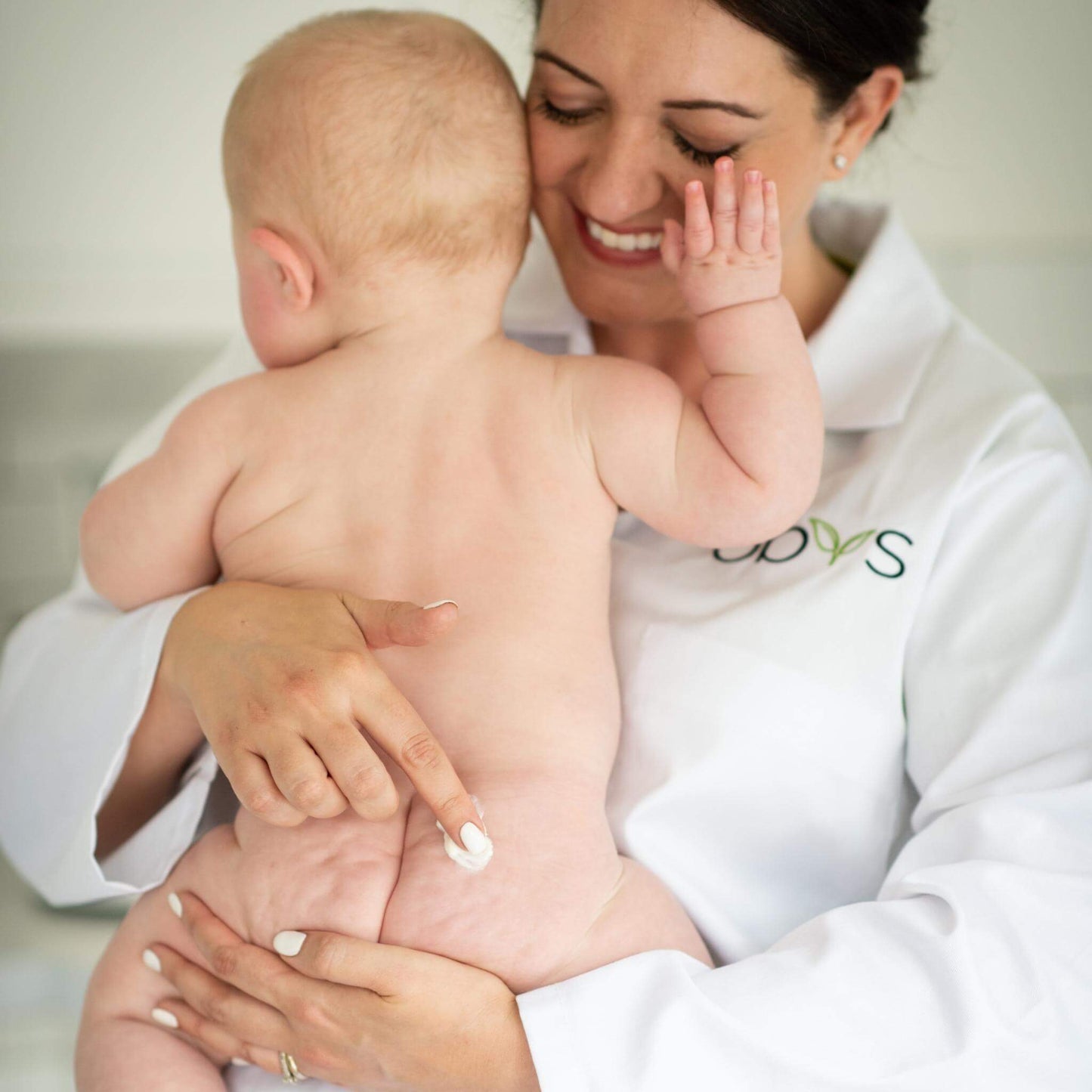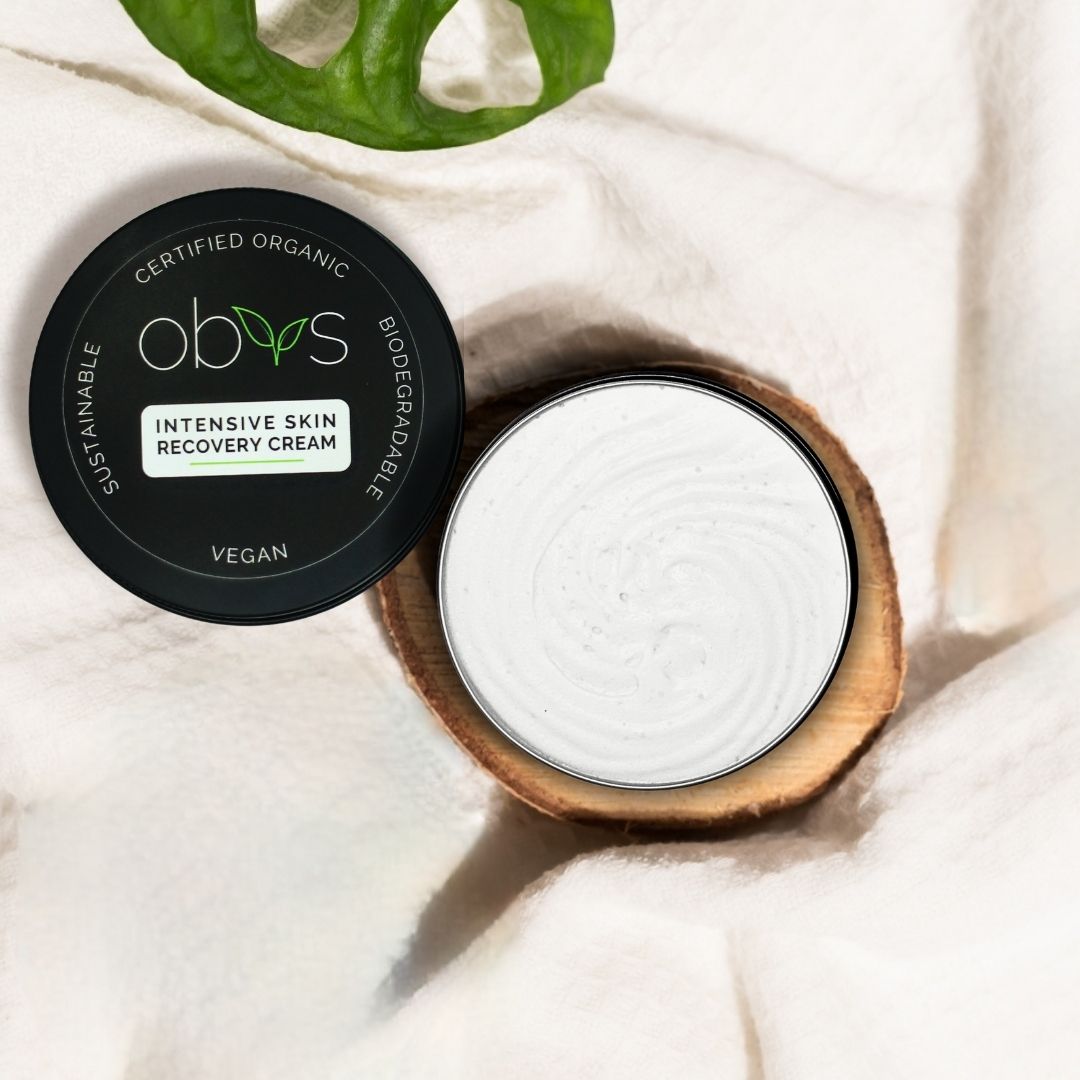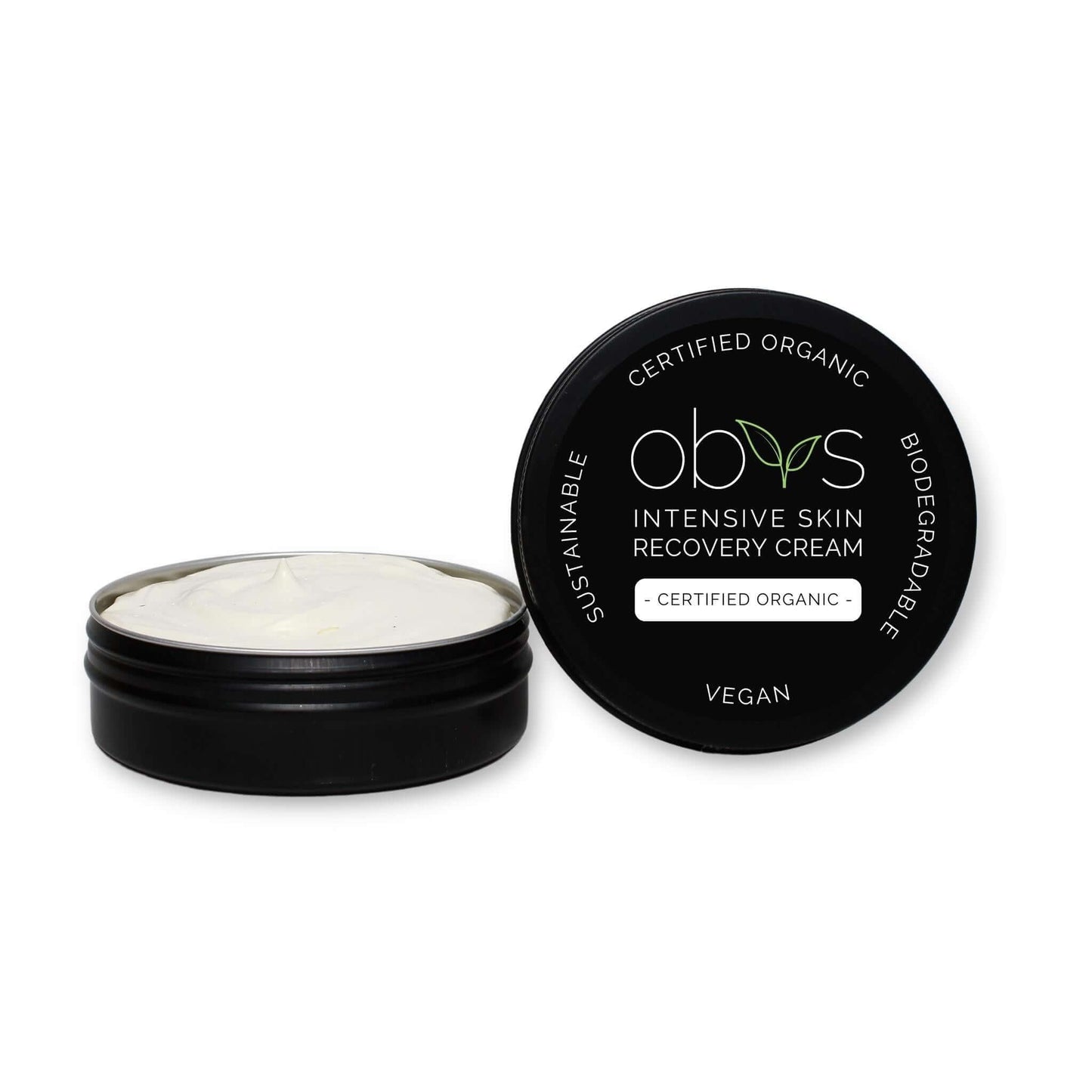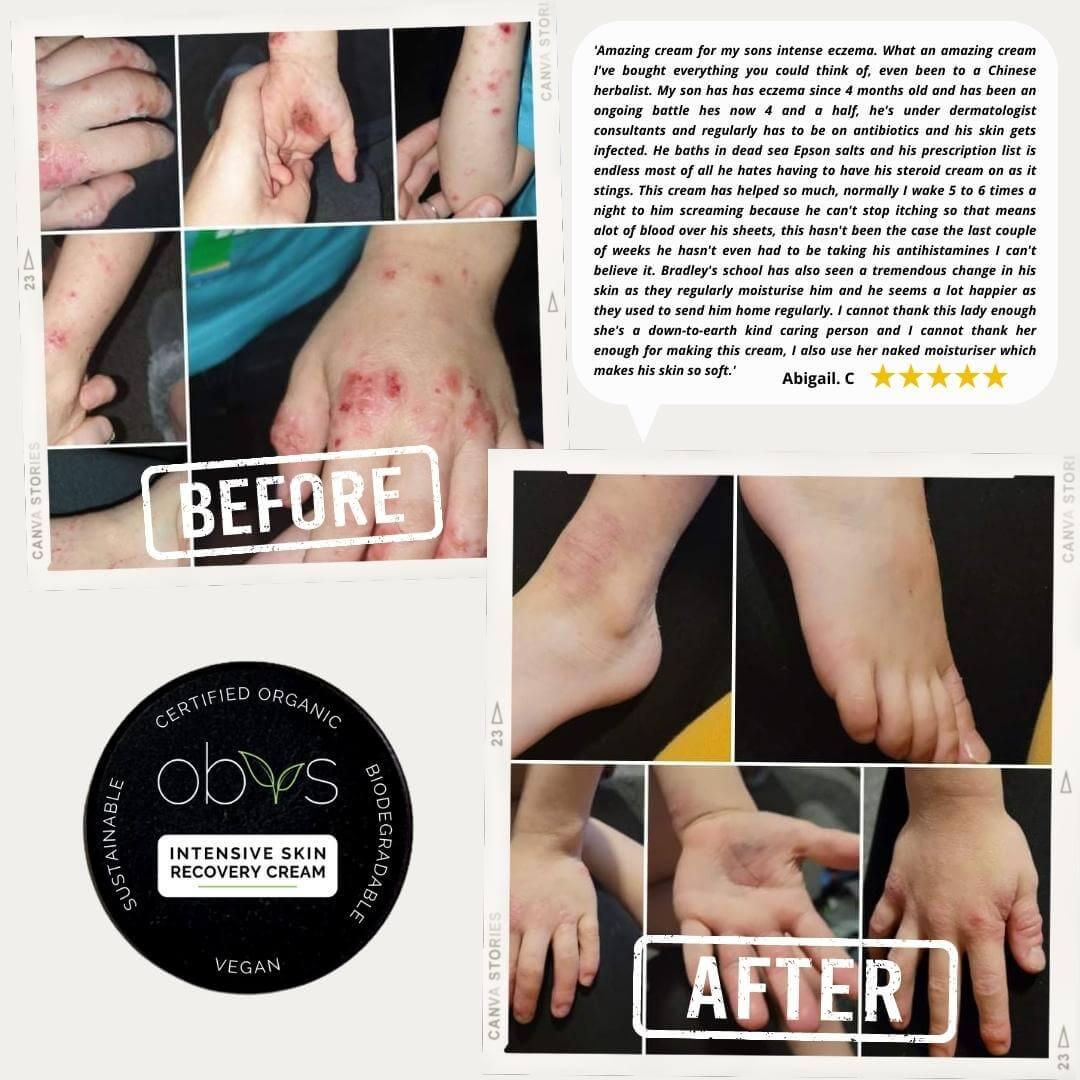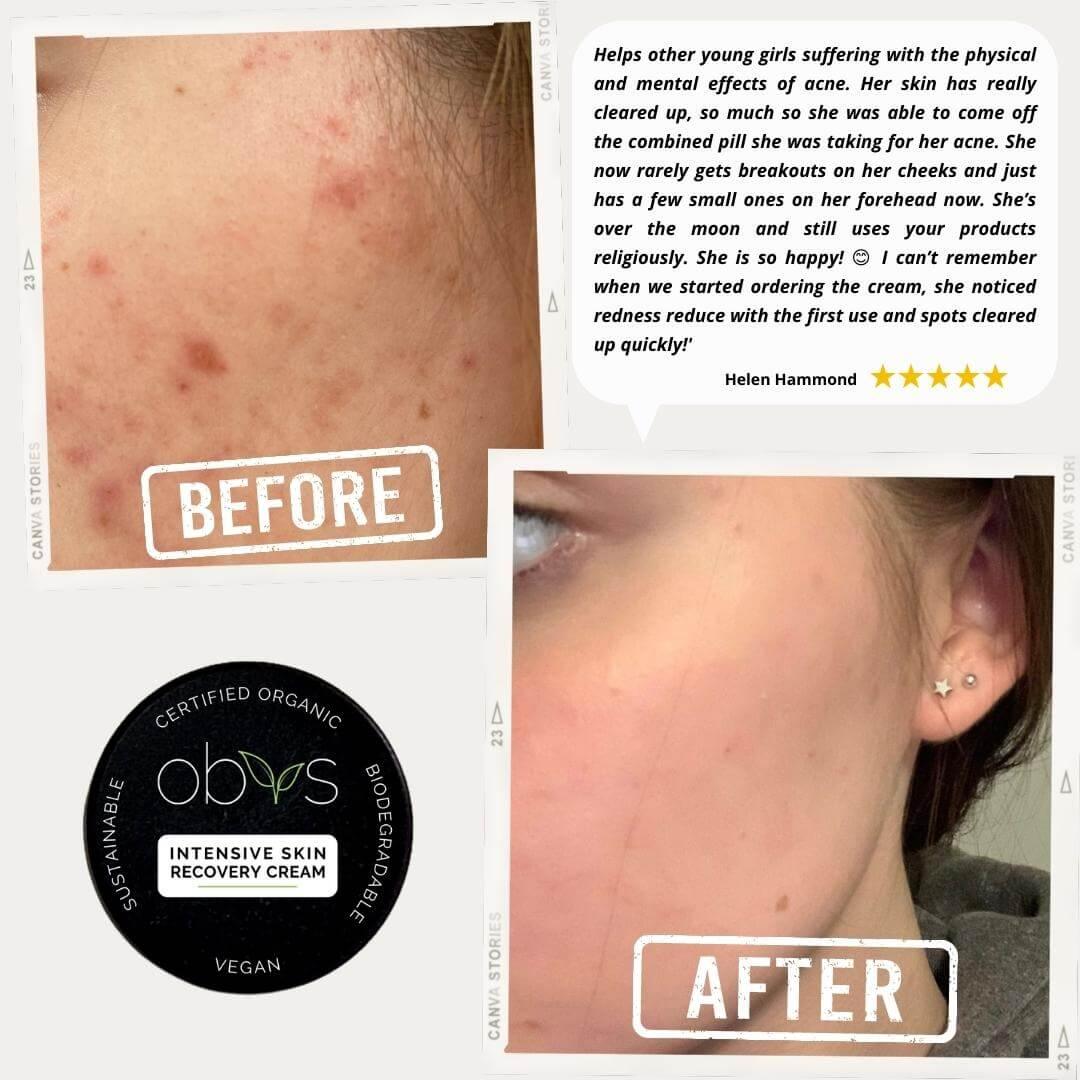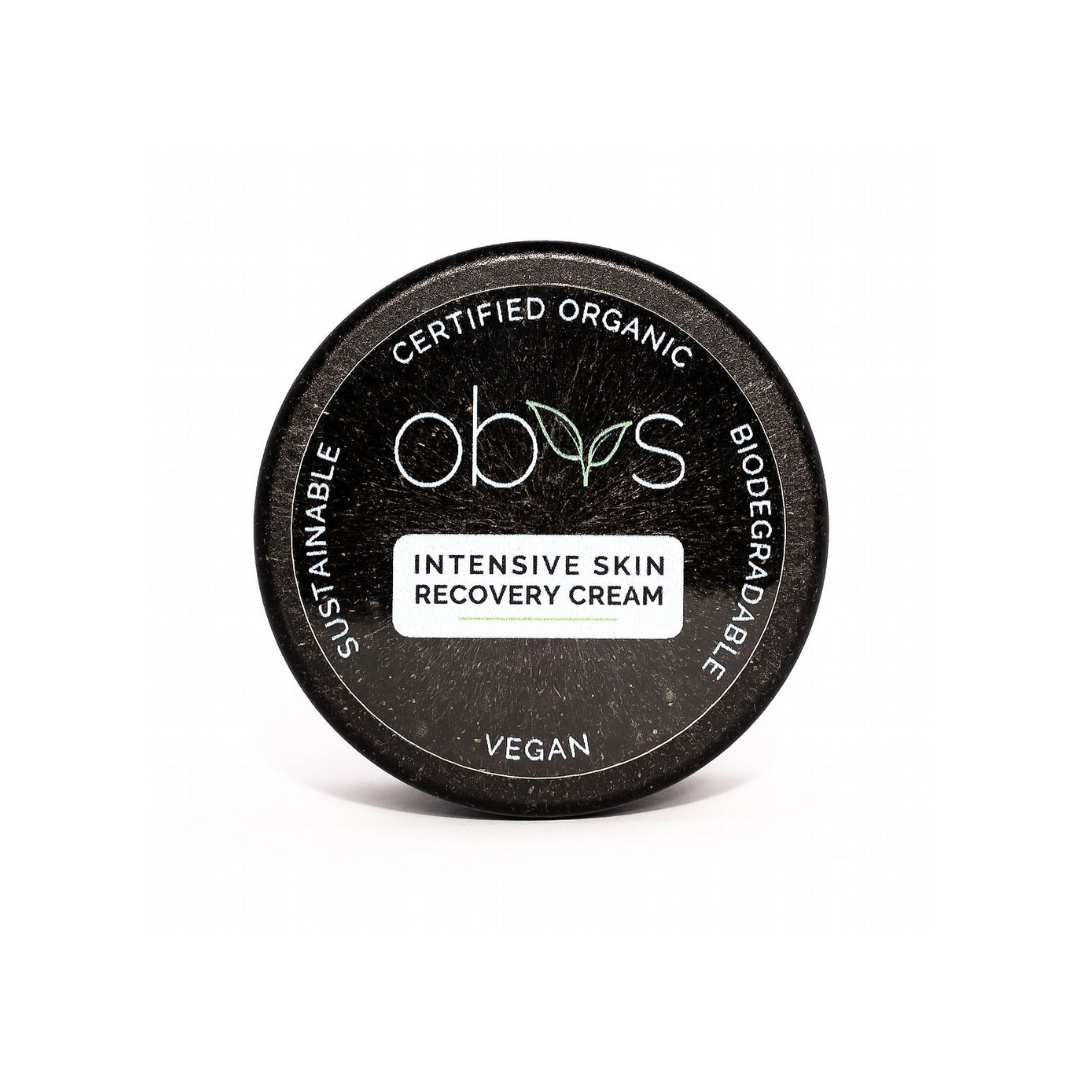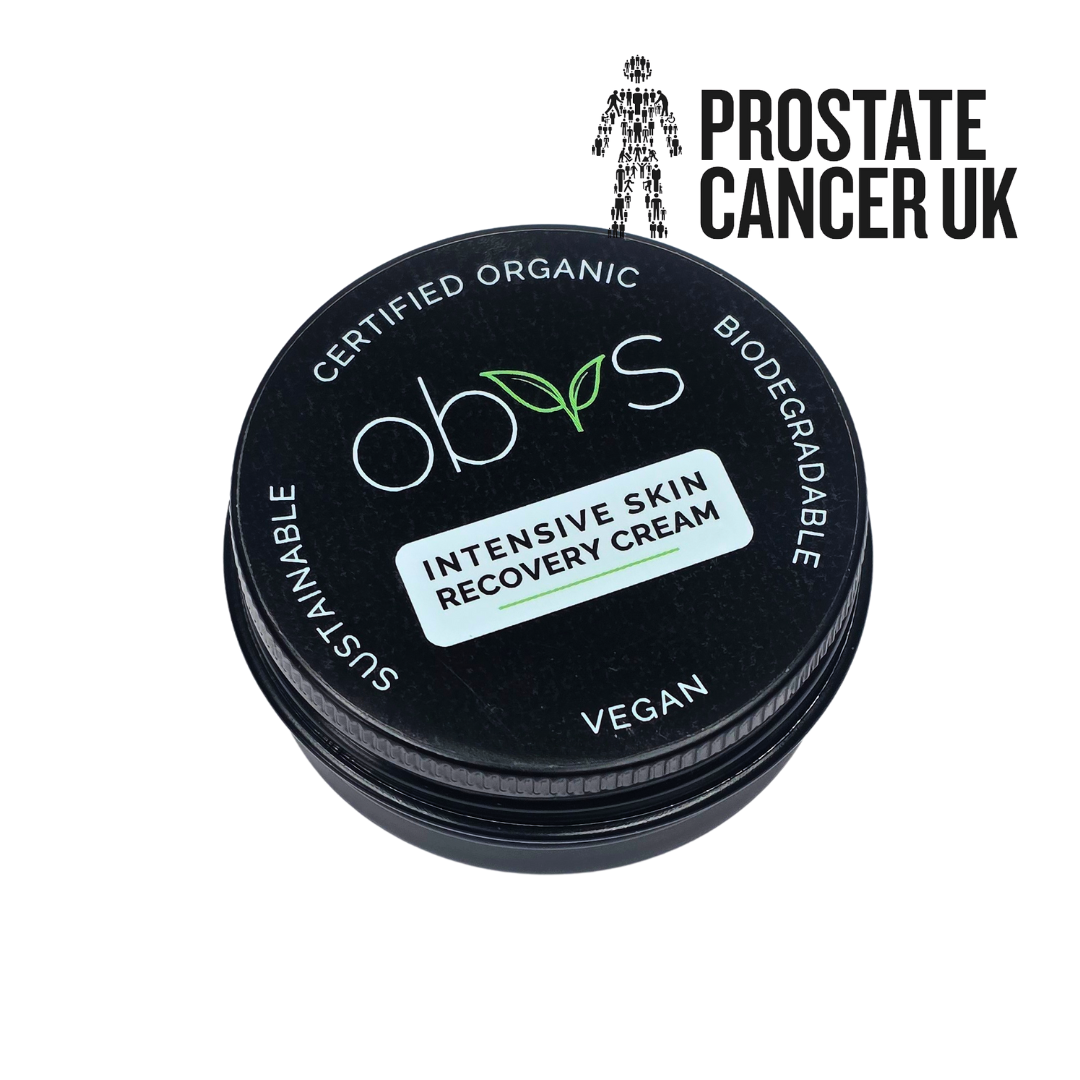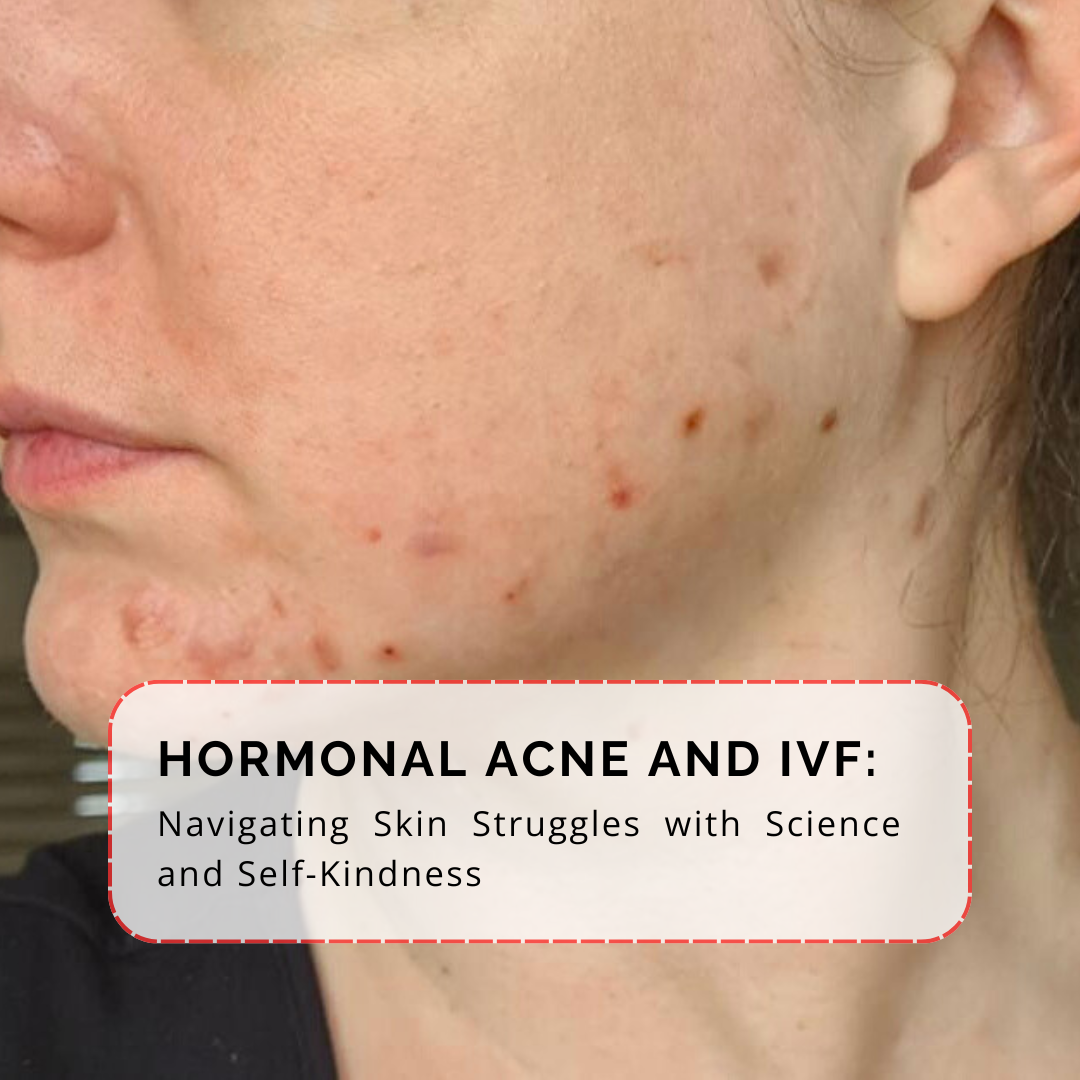
Hormonal Acne and IVF: Navigating Skin Struggles with Science and Self-Kindness
Share
Picture this: you’re deep into an IVF cycle, riding a wave of hope and hormones, only to wake up to a face full of angry breakouts. It’s enough to make anyone feel defeated. But you’re not alone, and I’m here to help.
As someone who’s walked the rocky path of IVF, I know how hormonal acne can feel like salt in an already tender wound. My name is Sian, and after a traumatic incident post-IVF left my skin in chaos, I founded Obvs Skincare—a COSMOS Organic and Vegan Society-certified brand built on a passion for gentle, effective solutions. In this blog, I’m diving into the science of hormonal acne during IVF, sharing evidence-based tips to calm your skin, and offering heartfelt advice on being kind to yourself (because, let’s be honest, when someone says “just relax,” it’s infuriating!).
The Science Behind Hormonal Acne and IVF
Hormonal acne during IVF isn’t random—it’s a direct result of the hormonal whirlwind your body endures. IVF medications, like injectables to boost egg production, can spike oestrogen levels by up to ten times and elevate androgens (male hormones like testosterone). These hormones overdrive your sebaceous glands, leading to excess sebum, clogged pores, and inflammation. A 2018 study in the Journal of Cutaneous Medicine and Surgery found that 27% of IVF patients report skin changes, including acne, due to these hormonal shifts.
Then there’s stress, the uninvited guest of any fertility journey. Stress pumps out cortisol, which cranks up sebum production even more. A study in Dermato-Endocrinology explains how the skin functions as its own endocrine organ, reacting to hormonal signals and stress with breakouts. To make matters worse, endocrine-disrupting chemicals (EDCs) in some skincare products—like phthalates (hidden in “fragrance” or “parfum”), parabens, and oxybenzone—can mimic or block hormones, potentially worsening acne and impacting fertility.
My own story reflects this science. After my IVF journey, an incident turned my skin into a battleground—hormonal acne and sensitivity took over. Conventional products, packed with paraffin (mineral oil) and synthetic fragrances, only aggravated things. Paraffin can clog pores and disrupt the skin’s natural oil balance, leading to acne and folliculitis, according to a 2018 study by Draelos. That’s when I created Obvs Skincare, driven by a mission to craft organic, vegan products free from harmful ingredients like microplastics, PEGs, and EDCs.
Why Your Skincare Choices Matter During IVF
Here’s a startling truth: we absorb up to 80% of what we put on our skin. During IVF, when your body is already grappling with a hormonal storm, the last thing you need is skincare that adds fuel to the fire. Ingredients like phthalates, parabens, and microplastics (found in some exfoliants) can penetrate the skin and potentially disrupt your endocrine system. A 2020 review in Critical Reviews in Toxicology noted that EDCs like phthalates can alter hormonal pathways, which may exacerbate acne and affect reproductive health.
But “natural” doesn’t always mean safe. Coconut oil, for example, is a skincare darling, but its comedogenic nature can clog pores and trigger breakouts, especially for acne-prone skin. Instead, opt for non-comedogenic, oil-based treatments like our Intensive Skin Recovery Cream, which contains zinc oxide to reduce inflammation and bacterial growth, paired with organic ingredients like shea butter and safflower oil to soothe without clogging pores.
Evidence-Based Tips to Manage Hormonal Acne During IVF
Here are science-backed strategies to nurture your skin and spirit during IVF:
Use Targeted Treatments with Zinc Oxide: Our Intensive Skin Recovery Cream, a treatment (not a moisturiser), harnesses zinc oxide to combat acne-causing bacteria and calm redness, as supported by a 2016 study in Medical News Today. For daily hydration, try our Organic Naked Moisturiser, a lightweight, non-comedogenic option.
Choose EDC-Free, Organic Skincare: Avoid products with parabens, phthalates, synthetic fragrances, PEGs, or microplastics. If you crave a scented product, go for those with essential oils, like our Evening Lavender Moisturiser or Morning Mandarin Moisturiser, which offer calming or uplifting aromas without hormonal risks.
Ditch Dairy: Dairy, particularly cow’s milk, contains hormones and growth factors that can disrupt your skin. A 2020 review linked milk to acne via insulin-like growth factor-1 (IGF-1), which boosts sebum production. Cutting dairy was a game-changer for my skin during IVF.
Incorporate Zinc and Vitamin E: Zinc fights bacteria and reduces oil, while vitamin E soothes inflammation. Look for these in skincare or eat zinc-rich foods like pumpkin seeds.
Practice Self-Kindness: I despise when people say “just relax”—it’s so annoying and utterly impossible during IVF! But small acts, like soaking in a warm bath with our Skin Recovery Salts infused with calming lavender essential oil, can lower cortisol. A 2018 study in Fertility and Sterility found stress-reduction techniques slightly improved IVF outcomes.
The Emotional Side of Hormonal Acne and IVF
Hormonal acne isn’t just skin-deep—it’s a blow to your confidence when you’re already feeling vulnerable. During my IVF cycles, every new breakout felt like a personal failure, as if my body was letting me down in yet another way. But here’s what I’ve learned: your worth isn’t tied to your skin or your fertility. You are enough, acne and all.
Obvs Skincare was born from this struggle—a promise to create products that are safe, effective, and kind to sensitive skin. Our Intensive Skin Recovery Cream has become a family favourite, helping everyone from babies with nappy rash to adults with hormonal acne. It’s not about selling you a miracle; it’s about offering a tool to feel a little more in control during a time when so much feels out of your hands.
A Final Word: You’ve Got This
Navigating hormonal acne during IVF is tough, but you’re tougher. By choosing organic, EDC-free skincare, cutting out dairy, and prioritising self-kindness, you can support your skin and your spirit. My journey with Obvs Skincare taught me that even in our darkest moments, we can create something beautiful. So, slather on that Intensive Skin Recovery Cream, breathe in the calming scent of our Evening Lavender Moisturiser, and remind yourself: you are not alone, and you are doing enough.
Read more about "My Story" here.
References
Draelos, Z. D. (2018). The safety of mineral oil in skincare. Journal of Cosmetic Dermatology.
Loden, M. (2003). The impact of prolonged moisturiser use on skin health. American Journal of Clinical Dermatology.
Holick, M. F. (2012). The skin: A powerful hormone factory. Dermato-Endocrinology.
Qasem, R. J. (2020). The estrogenic activity of resveratrol: A comprehensive review. Critical Reviews in Toxicology.
SKINICIAN. (2024). The ultimate guide to skincare while trying to conceive. SKINICIAN.
Medical News Today. (2024). How to treat hormonal acne naturally at home. Medical News Today.
Brown, V. J., et al. (2017). PEGs and skin irritation. Journal of Toxicology.
Darbre, P. D. (2012). Parabens and breast cancer. Journal of Applied Toxicology.
Inovi Fertility and Genetics Institute. (2025). Are your beauty products hiding fertility risks? Inovi Fertility.
